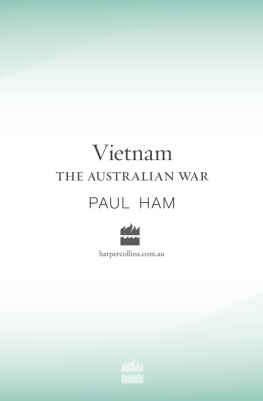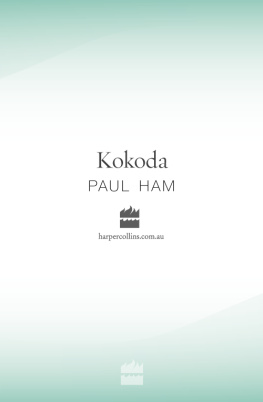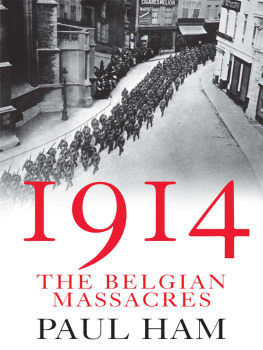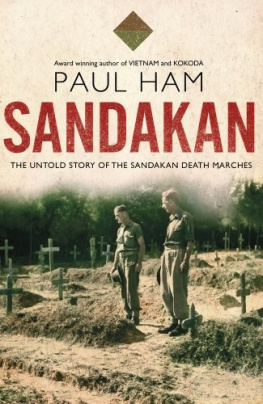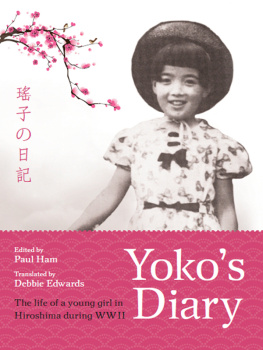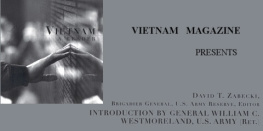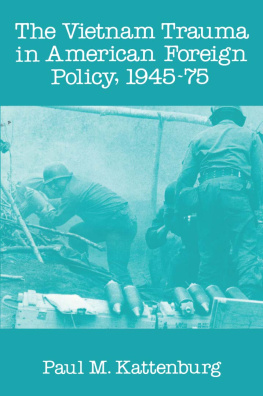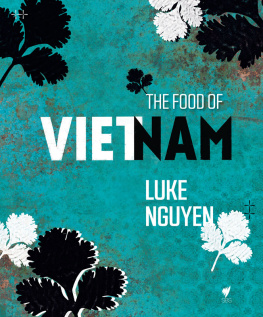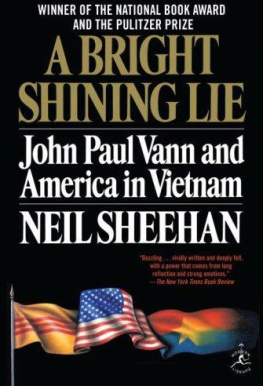Paul Ham - Vietnam
Here you can read online Paul Ham - Vietnam full text of the book (entire story) in english for free. Download pdf and epub, get meaning, cover and reviews about this ebook. publisher: HarperCollins Publishers, genre: Romance novel. Description of the work, (preface) as well as reviews are available. Best literature library LitArk.com created for fans of good reading and offers a wide selection of genres:
Romance novel
Science fiction
Adventure
Detective
Science
History
Home and family
Prose
Art
Politics
Computer
Non-fiction
Religion
Business
Children
Humor
Choose a favorite category and find really read worthwhile books. Enjoy immersion in the world of imagination, feel the emotions of the characters or learn something new for yourself, make an fascinating discovery.
- Book:Vietnam
- Author:
- Publisher:HarperCollins Publishers
- Genre:
- Rating:4 / 5
- Favourites:Add to favourites
- Your mark:
- 80
- 1
- 2
- 3
- 4
- 5
Vietnam: summary, description and annotation
We offer to read an annotation, description, summary or preface (depends on what the author of the book "Vietnam" wrote himself). If you haven't found the necessary information about the book — write in the comments, we will try to find it.
Vietnam — read online for free the complete book (whole text) full work
Below is the text of the book, divided by pages. System saving the place of the last page read, allows you to conveniently read the book "Vietnam" online for free, without having to search again every time where you left off. Put a bookmark, and you can go to the page where you finished reading at any time.
Font size:
Interval:
Bookmark:
To my mother and father
and
Zuzana Lenartova
Dedicated to the Australian servicemen and women
and their families
who fought this politicians war
Better to conquer hearts than citadels
Nguyen Trai, Vietnamese poet, 1426
What were we who had strayed in here?
Joseph Conrad, Heart of Darkness
The general principle has been to present measurements, where practical, rounded in the metric scale. Exceptions were made when a measurement is in a direct quote or is an acceptably well-understood unit.
Measurements in gallons and tons have been retained as per their source because of the difficulty in determining whether a UK or US system has been used.
1 inch = 25.4 millimetres
1 foot = 305 millimetres
1 yard = 914 millimetres
1 mile = 1.6 kilometres
1 acre = 0.405 hectares
1 pound = 0.454 kilograms
1 UK gallon = 4.54 litres
1 US gallon = 3.79 litres
1 UK long ton = 1.01 tonne
1 US short ton = 0.9 tonnes




The place
Three thousand years
How dare you, barbarians, invade our soil?
Your hordes, without pity, will be annihilated!
General Ly Thuong Kiet, in a poem rallying his Vietnamese troops
against the Chinese (eleventh century).
N ear Bennelong Point, Sydney, on the night of 7 April 1967, a young Australian soldier and his girlfriend were saying goodbye. They sat hand in hand under a giant fig tree at Mrs Macquaries Chair, overlooking Garden Island wharf, where HMAS Sydney, lit up like a giant passenger cruiser, was docked and waiting.
It was sunset, one of those brilliant sunsets that seemed perfectly to fit the contours of Sydney, as though the city itself had been designed as the backdrop for a soldiers sad farewell: the white curves of the Opera House were then half built, yet already suggested shells, or sails, on a fantastic scale; the Harbour Bridge, dark and stern in the background, seemed to frown on the burgeoning wonder by the quay; and all was young and golden in the fading lightuntil the sun, as if on cue, dutifully disappeared with a last, orange blast beneath the bridge. The day expired, and the stars emerged.
Private John Binnie, 21, a graziers son from Singleton and a member of the fifth intake of national servicemen, was due on the ship at 10 p.m. The deadline passed. Im not leaving yet, he told Victoria, his girlfriend of three weeks, and he embraced the attractive 18-year-old he already knew as Vic.
John kept saying to me, You dont want to fall in love with a soldier, Victoria said, forty years later. We sat holding hands, she recalled, and feeling quite desperate. It was a beautiful night. Would they meet again, after his tour in Vietnam? The question of marriage lingered unsaid; they were barely out of school. As 11 p.m. approached, the couple walked hand in hand back to the boat. Binnie, along with several hundred members of his battalion, then boarded the Sydneythe Vung Tau Ferrybound for South Vietnam. He was charged for being lateand next morning ordered to chip the rust off the deck.
The next day, Victoria and Binnies father said a last goodbye on the wharf, then drove up to South Head, where they watched the great ship slip out of Sydney Harbour and turn north. His father absolutely couldnt speak, Victoria recalled. Binnies mother stayed at home, weeping inconsolably: She adored John, Victoria said. She couldnt come to see him leave. Later that day, Victoria went to visit her: She started drinking heavily the morning after he left for Vietnam.
David Llewelyn similarly departed for Vietnam on HMAS Sydney, in 1968. His memory of the ship pulling away resonates with many: The sailors lined the deck facing out to sea and the soldiers faced the wharf and their loved ones down below. I felt a huge ache in my stomach and as the ship started to move, I could hear this deep sobbing coming from one of the soldiers. It sounded so sad, and it was almost as if he was voicing the distress of all of us on our behalf. I had a few moments to settle down, and then the plaintive sound of a lone piper standing at the very end of the wharf came across the waterThose sounds will stay with me forever. The farewellwas particularly poignant as it was my wife of three months I was leaving behind.
Paul Murphy, the youngest of three children raised in Canberra, worshipped his father. A mild-mannered Labor-voting engineer is how Murphy remembers him. After leaving school, Murphy joined an insurance company, but the lure of adventure led him to volunteer for national service. I was young; I wanted to go to Vietnam.
One Saturday morning, in late August 1966, Murphy returned home on leave from infantry training. News of the Battle of Long Tan had just reached Australia: When Dad heard the news, Murphy recalled, he kicked my bedroom door in and shouted, Seventeen blokes have been fucking killed and you want to go to Vietnam! It was the only time I ever saw him cry.
Murphys departure was awkward and very low key: You were given an hour at the airport with your family. We stood around. My brother, sister and my girlfriend all came. Dad steeled himself for ithe was a meek and mild man. I shook his hand. I shouldve hugged him. I kissed my mothershe later left Dad for someone elseand then I boarded the flight to Vietnam.
Within a few months, about a quarter of Murphys unitDelta Company, Second Battalion, the Royal Australian Regimentwere dead or wounded: The blokes felt we were cursed, Murphy later said. We had a wake and got pissed. But the blokes lost itthey were sobbing for their dead mates. We were absolutely, emotionally distraught. We were 20-year-old hairy-arsed boys.
Rural Australia doted on its first nashosnational servicemenand the small Victorian town of Ensay, in the close-knit shire of Omeo, was typical. In 1964, Barry Heard, a local farm labourer, had ideas of becoming a shearer. At weekends he took his girlfriend to Young Farmers woolshed dances. He loved the mutual support of the rural community: when a fellow local footballer died in a car accident, hundreds attended the young mans funeral. As the coffin was lowered into the earth, the entire community started to grieve as one, Heard wrote, as our dear friends soul was sent off with all the love this little community could muster.
One day, out of the blue, Heardthen 19received a very official letter in a brown envelope, informing him that his name had been drawn in a ballot for national service. A number on a little wooden marble had coincided with his birth date; suddenly, he wore the badge of Ensays first conscript: Apart from feeling a sense of mild panic, I had no idea what it all meant. Nobody opposed national service in Ensay: It was endorsed by the Country Party, so that was that.
To contain communist aggression was the most cited reason why Australia committed 50,000 defence personnel to our longest military confrontation (1962-72). And in 1964, when Barry Heard was conscripted, the war was hugely popular, and both regulars and conscripts felt the frisson of excitement that many young men have always felt, and which politicians have always exploited, on the eve of battle. They were not only doing their duty; they were also off on a great adventure. Even reluctant conscripts felt an obscure sense of duty, as Heard recalled: the call of the hero, or the whisper of an ancient masculine predisposition to protect and defend. The great majority of Australian people initially accepted the political justification for sending these young men, almost half of whom were recruited at random, to a war few understood, fought thousands of kilometres from home.
Font size:
Interval:
Bookmark:
Similar books «Vietnam»
Look at similar books to Vietnam. We have selected literature similar in name and meaning in the hope of providing readers with more options to find new, interesting, not yet read works.
Discussion, reviews of the book Vietnam and just readers' own opinions. Leave your comments, write what you think about the work, its meaning or the main characters. Specify what exactly you liked and what you didn't like, and why you think so.

